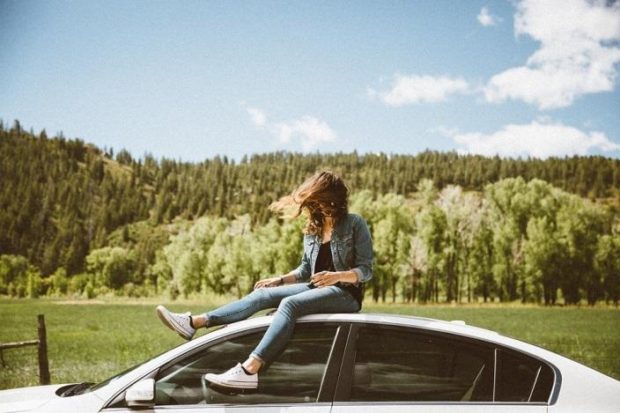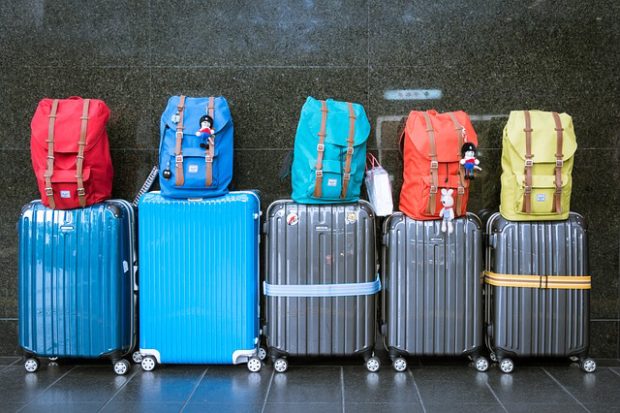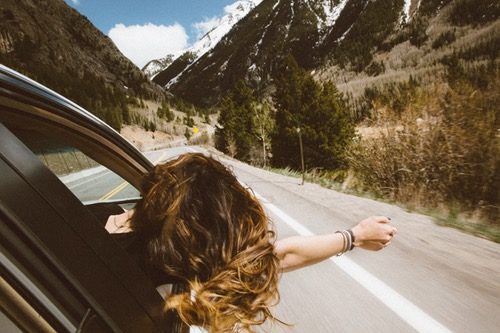6 Car Camping Tips For Women

As we move into November, camping season may be coming to a close for folks in northern climates. For those of us who live in the deep south, prime camping season is just now ramping up. And if you’re experienced enough and are able to deal with extreme temperatures and conditions, camping can be a year-round hobby. What’s more, camping isn’t just a pastime for the boys, either. Women can just as easily venture out into the great outdoors, and with the proper preparation and planning, an exciting weekend with Mother Nature is only a car ride away! Here are six tips for ladies who want to get out and do a little car camping.
Choosing A Location
The first step in planning your camping adventure is to actually pick where it is you want to go. This decision really drives the rest of your planning—what you’ll pack, what you’ll eat, etc. For the purposes of this article, we’ll be discussing car camping—meaning you’ll be packing all your gear into your car, truck, or SUV and driving to your destination (as opposed to backpack or canoe camping, for example).
The great thing about car camping is that when it comes to picking your location, you can really go wherever you want. It all depends on how far you want to drive to get there. However, if you’re just going for a long weekend (a night or two), we recommend you keep your destination to within 3-4 hours of where you live. This way, you won’t be spending all your time on the road driving, and should an emergency arise back home, you’ll be able to make it back within a few hours. Plus, if you keep your destination just a few hours away, you don’t have to worry about the stressful task of finding and setting up camp in the dark.
Once you’ve decided on a location, you’ll need to reserve your camping spot. Some of the more popular venues will sell out months in advance, so plan ahead accordingly. It’s also important to think about what you’ll want to do once you arrive and set up camp. Do you want to hike? Swim in a river or lake? Ride horses? There are countless campsites that cater to these outdoor activities, so plan to stay close to the things you’ll be doing throughout the day.
If you’re staying in a more developed campground, consider the specific location you book. If you’re going to have little ones with you, it might help to pick a spot that’s only a short walk from the showers and restrooms. If you’re looking for a little more peace and quiet, try to get something in a far corner of the park.
Choosing A Shelter
Now that you know where you’re going, it’s time to get down to the nitty-gritty. What are you going to be sleeping in? Now, you can always go hardcore cowgirl and cozy up to a fire with nothing more than a wool blanket to protect you, but we’re going to assume you’re looking for a shelter that’s slightly more robust. And when it comes to shelters, there is no shortage of options.
The most common option when it comes to camping shelters is the good old-fashioned tent. But not all tents are created equal, and they certainly aren’t what they used to be. When selecting a tent, it’s important to consider how many people will be camping with you and choose a tent that’s large enough to accommodate everyone.
Here’s the thing about capacity ratings—while a 4-person (or 6, 8, or 10) tent will certainly accommodate 4 people, it usually won’t do it comfortably. A good rule of thumb is to purchase a tent that’s rated for at least two people more than will actually be camping. So, if there will be 4 of you camping, go with at least a 6-person tent. You’ll have plenty of room for everyone and their belongings.
If you’re looking for a little added security, consider purchasing an SUV tent. These specialized tents wrap around the back of your SUV or truck, allowing you access to and the security of the inside of your vehicle. They can be especially comfortable when camping in severe weather.
If you’re feeling a little more adventurous, consider the fast-growing method of hammock camping. When deployed correctly, snoozing the night away in a hammock can be one of the best night’s sleep you’ll ever have. Also, if you’re concerned about space in your vehicle, a hammock is your best bet. Most quality camping hammocks are about the size of a softball when stuffed into their storage sacks.
Finally, if you’re really looking to bring all of the comforts of home with you when camping, staying in an RV is your best bet. You’ll be a bit more limited in terms of where you can go, but you’ll also have electrical appliances, hot water, and in some cases, a king-size bed!
What To Pack
Another great thing about car camping is that when it comes to packing, you’re limited only by the size of the vehicle you’re driving. We’ll go over some of the basics in a moment, but as a general rule, when it comes to car camping, if you think you might need or want it, bring it!
By now, you should have picked which type of shelter you’ll be staying in, so that needs to go in the car first. Next, you’ll need to pack your sleeping gear. You can always go with the trusty sleeping bag to stay warm at night, and there are countless models on the market. Just make sure to select a bag that’s rated for a temperature low enough to accommodate your plans. However, you don’t have to buy a sleeping bag—sheets and blankets work fine when it comes to car camping. Finally, don’t forget your favorite pillow and comfy jammies!
Next, you’ll need to pack your cooking supplies. When it comes to camp cooking and the gear you’ll need, it really depends on how fancy you want to get. For you girl scouts out there, you know that a handful of veggies, some ground beef, and a roll of tinfoil is enough to make a gourmet foil packet meal. But again, as long as you have room in your car, feel free to toss in all the pots and pans you want! If you’re uncomfortable cooking over an open fire, you can find plenty of inexpensive camp stoves fully capable of tackling any recipe you throw at it.

Staying clean is extremely important while camping. We’ll go over camping hygiene in more detail below, but at a minimum, you need to pack plenty of sanitary wipes, hand towels, toilet paper, and Purell. Not only will Purell keep your hands germ-free, but it can also be used as a fire starter in a pinch!
Finally, car camping allows you to pack some extra items that you wouldn’t necessarily bring along on a backpacking trip when you’re trying to keep weight down. Feel free to throw in luxury items so that your car camping trip is as enjoyable as possible. Throw in a comfy camp chair, some board games, books you’ve been meaning to read, a Bluetooth speaker—whatever you want!
Meal Prep
While there isn’t much science to prove it, meals just taste better when you’re camping. Maybe it’s because it’s more fun to prepare them over a campfire or outdoor stove than in your own kitchen. At any rate, part of your car camping planning should involve your meals.
This decision really hinges on how comfortable you are with cooking outdoors. You can keep it easy and traditional by roasting hot dogs on a stick and following that up with the go-to dessert when camping—S’mores! But if you’re comfortable with it, you can go full-on Racheal Ray if you’d like!
If you’re planning to cook a more detailed meal over an open fire, consider investing in a few cast-iron pots and pans. They’ll last forever and they’re the best bet for cooking over an open fire. They weigh a ton, but remember, you’re packing everything in your car. So, as long as you have the room, bring them along!
You can also pick up a two-burner camp stove that runs off of small propane canisters for a reasonable price. This will allow you to cook just about any type of skillet meal you can think of, and if you have a traditional coffee percolator, it ensures that you get your morning cup of joe, which your fellow campers are sure to appreciate.
Store any perishable items in a cooler and keep your cooler locked up in your vehicle if you can, especially if you happen to be camping in bear country (more on that later). Also, if you can prep any ingredients before you hit the road, your life will be much easier once you arrive at camp (e.g. chopping veggies for a stir fry and storing them in a Ziploc bag).
Finally, load up on snacks! Not only will they come in handy as you’re sitting around the fire chatting and sipping a nice glass of wine, but if you have a slightly longer road trip in order to get to your campsite, you’re going to need some solid road trip snacks!
Safety
For the most part, camping is a pretty safe hobby. However, it still requires a degree of responsibility. Here are a few things to keep in mind when car camping.
First off, let family and friends know that you’re going camping, especially if you’re going to be camping alone. Make it clear where you’re going, how long you’ll be out, and when you’re expected to return home. Also, be careful when posting to social media when you’re camping alone. Tagging yourself in some remote location when you’re by yourself isn’t an invitation you want to make public.
You should also consider carrying some sort of personal defense item. If you’re comfortable with firearms and it’s legal to conceal carry in the state in which you’ll be camping, consider taking a course and getting certified. If not, a can of pepper spray isn’t a bad idea. You’d be surprised how comfortable that little can feels in your hand on a dark walk to the restrooms in the middle of the night! At the very least, keep your car keys on you at all times. The jingle of the keys can scare off curious wildlife and your car alarm can be very discouraging to anyone you don’t want in your camp.

Speaking of wildlife, educate yourself as to what critters will be around while you’re camping. Bears are your biggest concern if you’re camping in regions of the country that play host to them. Keep your food in a cooler and locked in your car, or hang non-perishables in a bear bag, at least 100 yards from where you’re camping. Even if you’re not in bear country, keeping your food secured will keep away raccoons and bugs, too.
Hygiene
Look, when you’re camping, you’re naturally going to get dirtier than if you’re lounging in your living room. But that doesn’t mean you have to go completely feral and come out of the woods looking like you’ve just finished a mud run. It’s especially important to practice good hygiene while camping in order to keep from getting sick.
If you’re camping in an actual campground, use the provided restrooms, just make sure you wash your hands when you’re finished. If you’re going a bit more primitive with your campsite, just make sure you’re “taking care of business” well away from your campsite, and remember to bury any solid waste.
Wash your hands frequently, and make sure you’re stocked up on hand sanitizer. If you’re camping for more than a night and you’re in an established campground, take advantage of the shower facilities. If showers aren’t available, a big package of baby wipes can go a long way in getting rid of some of the funk you’re bound to pick up!
Conclusion
Camping is a great way to ditch the hustle and bustle of everyday life and recharge your batteries. But it does take some careful planning and packing. Hopefully, our advice will help you get you off on the right foot. Now, get out there and have your own adventure!

